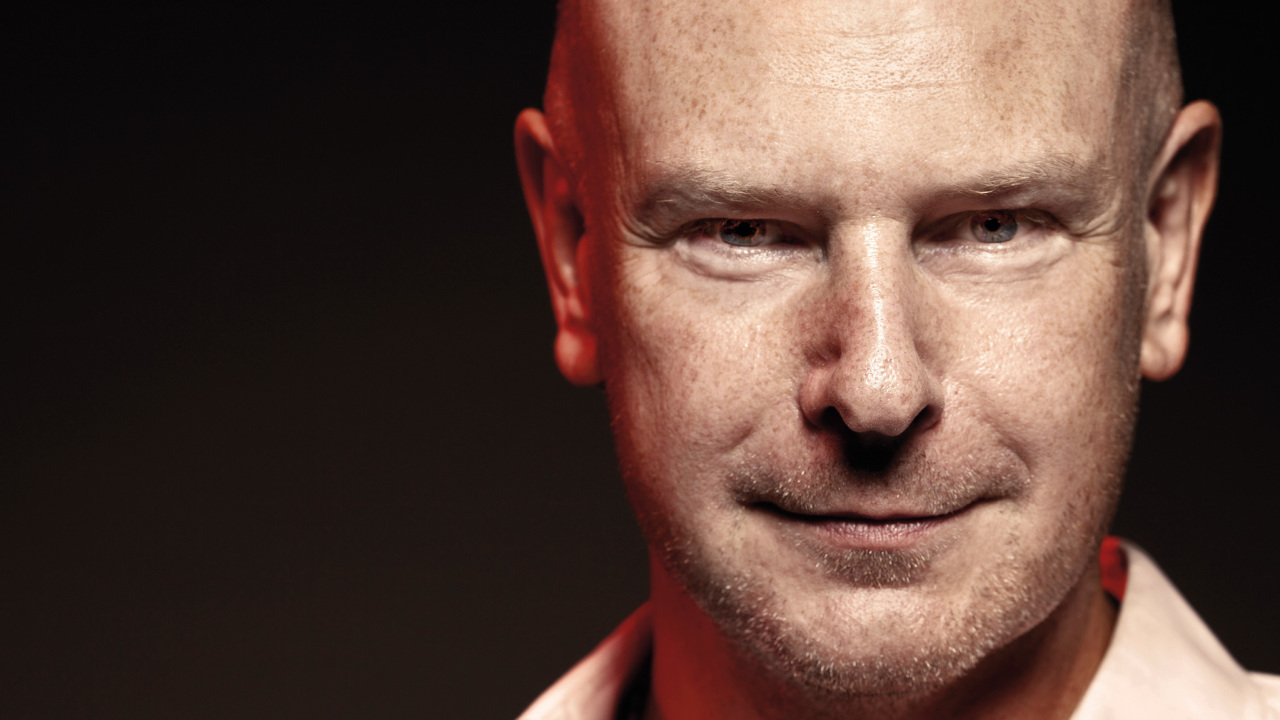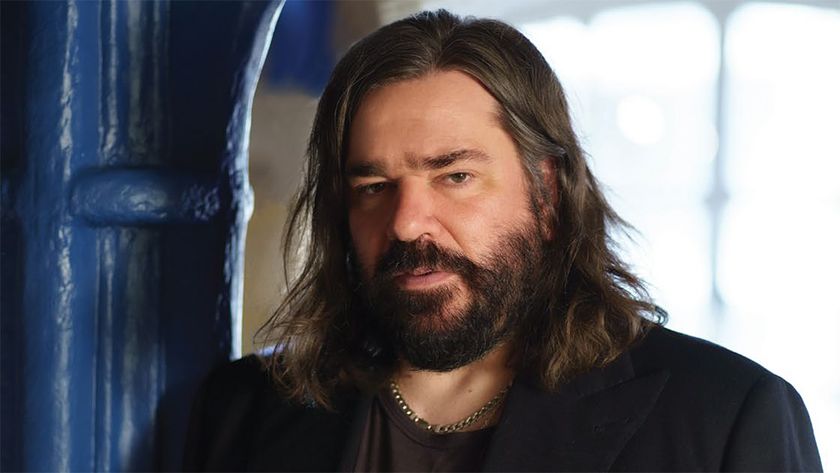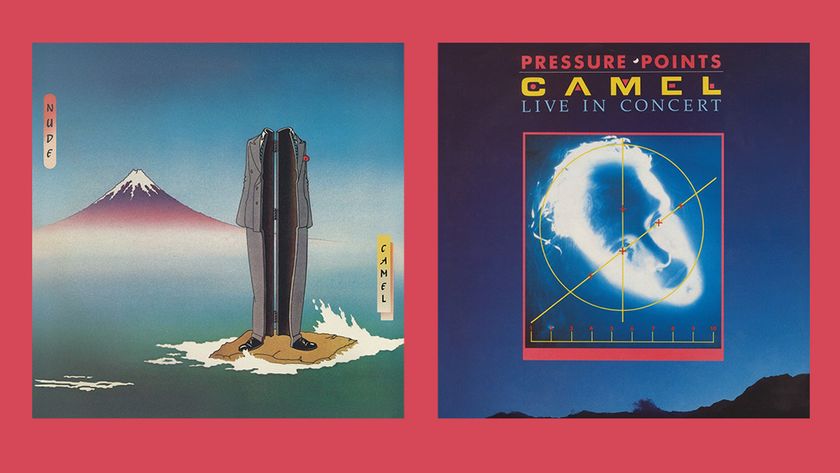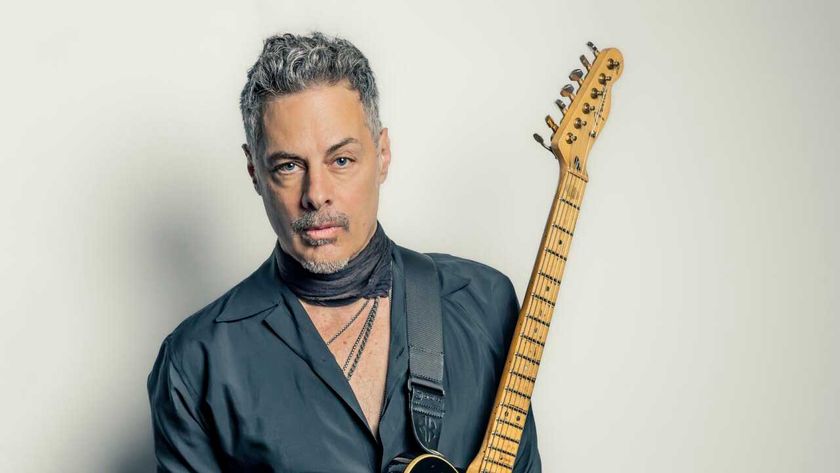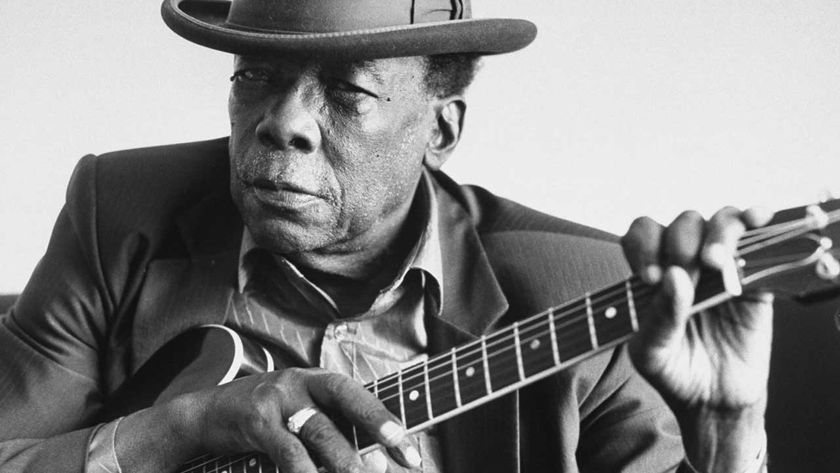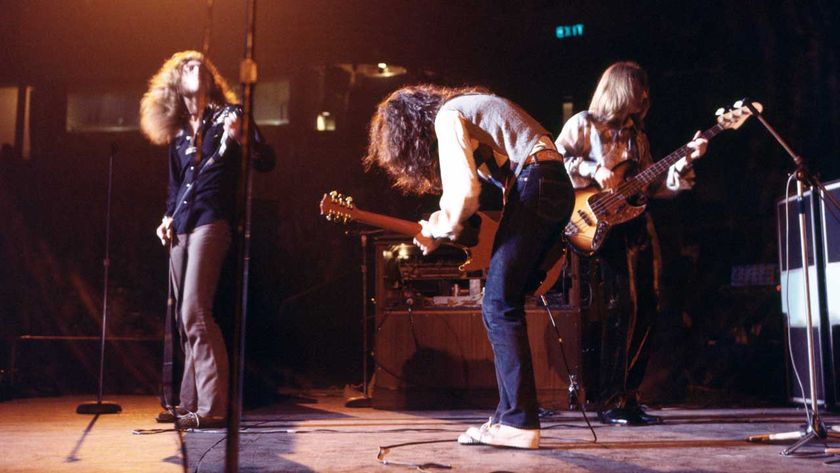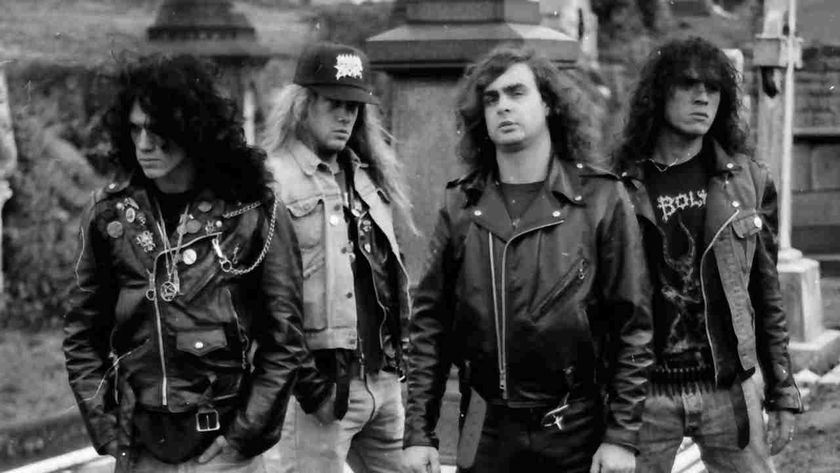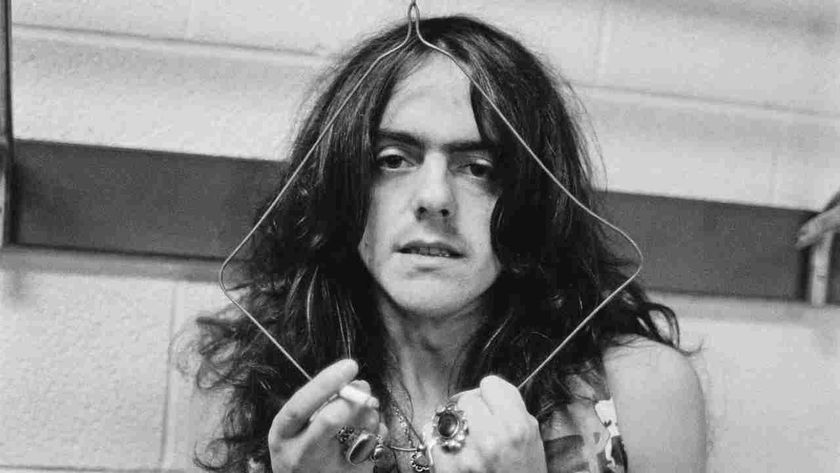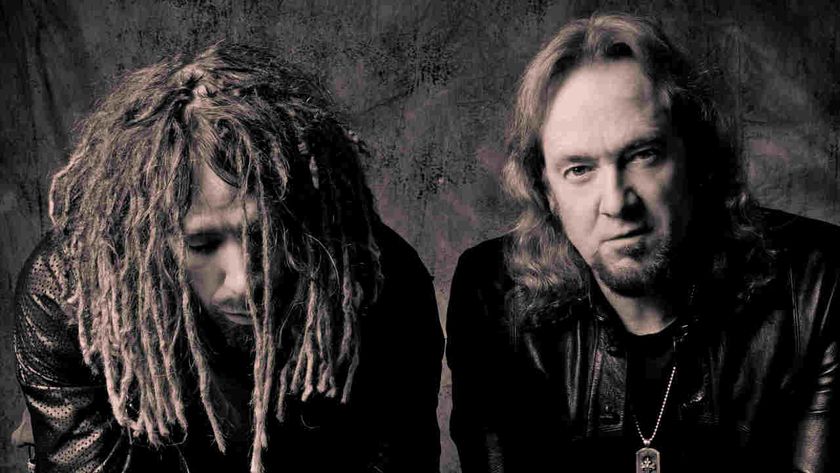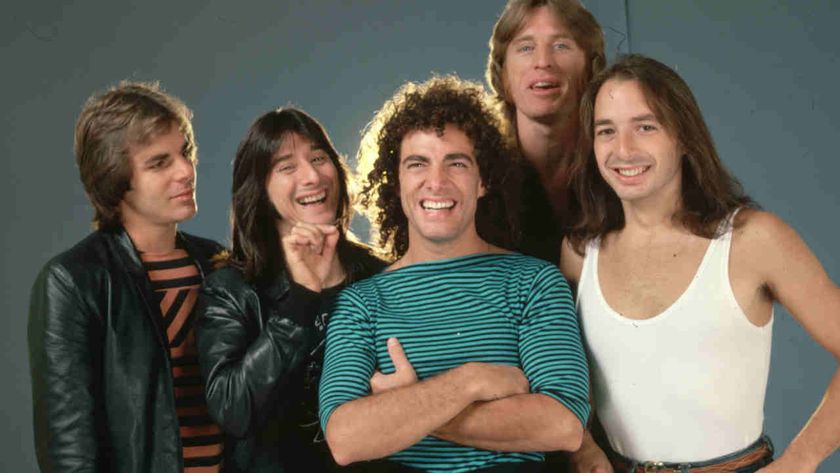Drummers and solo albums. You know the old cliché: the man behind the kit who’s really a frustrated frontman, deluding himself into thinking we’re missing out on something special. Occasionally it works out well, but more often than not, it all goes a bit Keith Moon.
The latest name to fling himself into the breach is Radiohead’s Philip Selway. And, thankfully, he’s one of those (take a bow Levon Helm, Dennis Wilson, Dave Grohl and, it has to be said, Phil Collins) who emphatically buck the trend. The very lovely Weatherhouse is the second album of a solo career that began, somewhat tentatively, four years ago. “It’s a work in progress and sometimes you need reassurance,” he says of his lone endeavours, “but you build from that. Ultimately, you follow your gut and I had a really strong instinct that I could do this.”
The beauty of Weatherhouse is that it shows marked progress from his 2010 debut, Familial. If the latter was a delicate dance of muted acoustics, all whispery intimations and soft accents, Weatherhouse is the sound of a more confident, expansive musician. It’s an album of rippling ambient pulses and beats, a synth-driven exercise in weightless folk-prog. Selway’s voice remains a thing of gentle pleasure, though it feels more assured and less vapoury than before.
“Looking back at where Familial came from,” Selway offers, “it was a hushed kind of writing process and I was very unsure about my singing voice at the time. It’s actually a very intimate record because of that. But I’d shown that I could do it, that I could be a singer-songwriter in my own right. So it felt like a natural progression to go on and make a record like Weatherhouse.”
One of Familial’s more surprising features was an almost total absence of drums, as if the only way to do this right was to break away from his day job completely. But Weatherhouse is a different animal. Producer Adem Ilhan, who’s also a key member of the studio band alongside fellow multi-instrumentalist Quinta, suggested Selway return to the stool.
“Adem was very keen for me to drum on this one,” he says. “He was very encouraging in that respect. In fact, the first thing that was going down on a lot of the tracks was the drums. So immediately you’ve got a different dynamic going on and the arrangements became much more strident in comparison to Familial. I’d also learned to sing out a bit more, so we got to the point where it became a very different record.”
Another signpost to Weatherhouse was the self-titled 1998 album by Mark Hollis, the enigmatic ex-figurehead of Talk Talk. “It’s a record I rediscovered a few years ago and was listening to a lot on tour with Radiohead in 2012. In some ways it feels like quite a simple record – there are very sparse arrangements – but harmonically and lyrically, it’s very rich. And I really liked that idea. It’s a record I keep coming back to and hearing something different every time. I can really lose myself in it and I suppose that’s what I wanted to do with Weatherhouse. There aren’t many musical parallels in terms of textures, but rather than having a wall of sound coming at you, I wanted to find certain distinct elements. And within that you find it leaves more space for those more ambient kind of feelings.”
Selway insists that going solo was never part of the initial plan. Instead, it seems, it became a more attractive prospect over time. In 2001 he drummed with Eddie Vedder, Johnny Marr, Lisa Germano and fellow Radiohead member Ed O’Brien as part of 7 Worlds Collide, a charity project conceived by Neil Finn of Crowded House. A live album, recorded in New Zealand, was successful enough for them to reconvene in the studio eight years later. The result was double LP The Sun Came Out, this time with Selway more creatively active. As well as playing drums and guitar, he also sang lead vocals on two of his own compositions: The Ties That Bind Us and The Witching Hour.
“In my head, the solo thing was starting to take shape before then,” he explains. “I’d been working on stuff for the year before the 7 Worlds Collide project. But after coming back from doing a fortnight with musicians that I hugely admire, as well as singing and playing guitar, I felt as though I had the bit between my teeth. I suppose it came from a desire to be a more accomplished songwriter. And everything went from there.”
Familial is very much a reflection of Selway’s own personality: meditative, warm, understated. Prior to joining Radiohead, he studied Literature, Life And Thought at Liverpool Polytechnic and worked as an English teacher. Since 1991 he’s been a listening volunteer with the Samaritans. It’s fair to say he’s hardly the typical rock star model.
The roots of his solo career seem to have arisen from a curiosity about the creative world that made him want to push himself as far as he could. “Familial went through various phases and Ian Davenport, the producer, was seeing me through them. I was trying to find out what worked for me. That whole process of making the record, then touring it, was a very steep learning curve. Especially with me being central to all that, holding your nerve. That’s always coming through in what we do in Radiohead anyway, but here it felt much more pronounced for me. I’m still very proud of Familial, but you take all of those elements and start to develop.”
An important step was the release of a four-track EP, Running Blind, in 2011. Written during the same sessions as Familial, Selway felt the songs were best served separately. He duly re-recorded them with the live band, allowing them more room to breathe.
The EP formed a bridge to Weatherhouse, which he began working on in the immediate wake of Radiohead’s mammoth The King Of Limbs tour. “With your main instrument you can go through peaks and troughs about how you feel about it and your relationship with it,” Selway muses. “But the combination of doing Weatherhouse and touring with Radiohead in 2012 allowed me to fall back in love with drumming. I suppose I was hearing more drum parts on this album anyway. And the three of us – Adem, Quinta and myself – were very much a closed shop when we started recording. We did the majority of it in the Radiohead studio, around Oxford, where we’ve got lots of lovely gear, so I just wanted to take full advantage of what was on offer.
“I think that shows in the arrangements. The sessions were really focused and productive. And what was coming back was very exciting and pleasantly surprising. I hadn’t expected some of the material to go in the direction it did. I also feel my lyrical voice is much more honed on Weatherhouse.”
And so to the Radiohead mothership. Thom Yorke has done solo work and Atoms For Peace, the Greenwoods have film scores to their credit and Ed O’Brien’s been involved in a handful of soundtracks and collaborations. Have Selway’s bandmates offered him much in the way of encouragement when it comes to flying alone? “We don’t really give each other advice outside of Radiohead,” he states. “Everybody’s supportive of what everybody else does and we see that it’s very important to do these things. We’ll all chip in when we’re working on Radiohead stuff, but out of that context, we recognise that everybody’s just got to find their own path.”
It certainly feels like Selway has found his. He’s now in the intriguing position of being in one of the most established arena bands on the planet, while at the same time embarking on the singer-songwriter circuit as a relative newcomer. “I’m a new artist, this is my second record and it feels to me like it’s going somewhere. The approach that I’m taking also allows me to feel my way through it. I hope Weatherhouse rings true because I wanted it to be pithy and emotionally resonant. That was the aim and I can probably relate to everything I’ve written in there. Making the album has opened up a lot of scope for where I can go next.”
For the time being, though, ‘next’ is Radiohead. The band are just starting work on a follow-up to 2011’s_ The King Of Limbs_ – which isn’t to say that Weatherhouse will be taking a back seat. “I’ll be touring this record in 2015, so the two things will be going alongside each other,” Selway says. “When we start working on Radiohead, we don’t work solidly through – we work in little pockets of time.”
So will there be a new Radiohead album next year? “God knows!” Selway laughs. “I really don’t know. It’s very early days yet. Let’s just say it’ll be a busy year for me.”
Weatherhouse is out now on Bella Union. See www.philipselway.com for more information.
